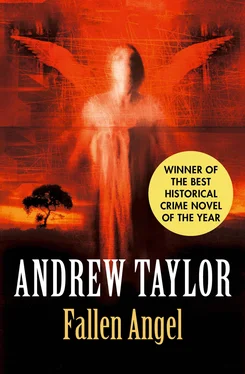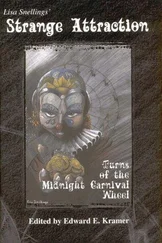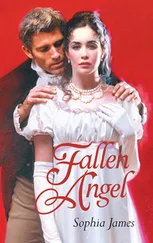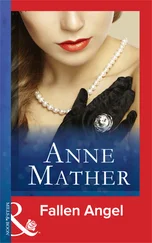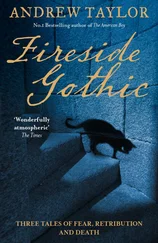‘You can come again next weekend, if you like.’
Jenny Wren nodded, with her mouth stuffed with chocolate and her eyes on the dolls’ house.
‘By that time I’ll have developed the films. Tell Mummy and Daddy I’ll give you some photos to take home for them.’
Next weekend the photographs were ready. There were more chocolates, more posing, more games with the dolls’ house. Stanley took some of his special artistic photographs, which involved the children taking off some of their clothes. Next weekend it was very warm, one of those early autumn days which until the evening mimic the heat of summer. At Stanley’s suggestion the children took off all their clothes.
‘All artists’ models pose without their clothes. I expect you already knew that. And I dare say neither of you would say no to a little extra pocket money, eh? Well, famous artists always pay their models. So I suppose I shall have to pay you. But this is our secret, all right? That’s very important. Our secret.’
After taking the photographs he suggested that they played a game until it was time to go home. It was so hot that he decided to take off his clothes himself.
‘You won’t mind, will you, Jenny Wren? I know Eddie won’t. He’s seen me in the buff enough times. All part of our secret, eh?’
So it continued, first with Jenny Wren and later with others. The children who excited Stanley’s artistic sensibilities were always girls. Even as a child, Eddie was aware that he was of secondary importance. In the photographs and in the games his role was not much more significant than that of the Victorian armchair. His father’s attention was always on the girl, never on him. As time went by, the invitations to the basement became rarer and rarer.
Once Eddie had reached puberty, his father did not want him there at all. On one occasion he plucked up his courage and knocked on the basement door. He was fourteen, and his father was about to photograph the latest LV, a girl called Rachel with light-brown hair, wary eyes and a freckled face. His father’s feet clumped slowly up the stairs. The key turned in the lock and the door opened.
‘Yes?’
‘I wondered if I could –’ Eddie looked past his father into the basement: the camera was on its tripod; Rachel was fiddling with the dolls’ house. ‘You know – like I used to.’
Stanley stared down at him, his face moon-like. ‘Better not. Nothing personal. But for child photography you have to get the atmosphere just right.’
‘Yes.’ Eddie backed away, hot and ashamed. ‘I see that.’
‘Young children are more artistic.’ Stanley rarely missed an opportunity to stress that his photography was driven by a high, aesthetic purpose. ‘Ask any sculptor from the Classical world.’ At this point he glanced behind him, down into the basement, as if expecting to see Phidias nodding approval from the Victorian armchair, or Praxiteles leaning on the workbench by the window and smiling encouragement. Instead, Stanley looked at Rachel, who was pretending to be absorbed in the dolls’ house. ‘Children are so plastic.’
As a very young child Eddie had admired Stanley and wanted to please him. Then his father had become a fact of life like the weather – neither good nor bad in itself, but liable to vary in its effects on Eddie. Then, with Stanley’s lecture on the aesthetics of his hobby, came the moment of revelation: that Eddie hated his father, and had in fact done so for some time.
The strength of Eddie’s hatred took him unawares and had a number of consequences. Some of these were trivial: he used to spit discreetly in his father’s tea, for example, and once he took one of his father’s shoes and pressed the heel into a dog turd on the pavement. Other consequences were more far-reaching, and affected Eddie rather than his father. It was Stanley’s fault, in a manner of speaking, that Eddie became a teacher, and Eddie never forgave him for that.
In his final year at school, Eddie told his father that he thought he might like to be an archaeologist. This was a few months before Stanley retired from the Paladin.
‘Don’t be absurd,’ said his father. ‘There’s no money in archaeology. I bet there aren’t many jobs, either. Not real jobs.’
‘But it interests me.’
‘That’s no good if it won’t pay the mortgage, is it? Can’t you do it as a hobby?’
‘There are jobs for archaeologists.’
‘For the favoured few, maybe. Top scholars. One in a million. You’ve got to be realistic. Why don’t I arrange for you to have an interview at the Paladin? There’s a chap I know in Personnel.’
The upshot of this conversation was that Eddie attempted to lay the foundations for a career in archaeology by studying for a degree in history at a polytechnic on the outskirts of London. It was not a happy time. As a student he floundered: it was not so much that the work was too demanding; it was more that there seemed such a lot to do, and it was difficult to know what was important and what wasn’t, and besides, his mind had a tendency to drift into daydreams. He lived at home, which distanced him from the other students. In the first summer vacation he spent a fortnight on an archaeological dig in Essex, where he began to grow a beard. It rained all the time and the work was hard and tedious. Eddie’s interest in the subject never recovered.
He kept the beard, however, wispy and unsatisfactory though it was, primarily because it annoyed his father. (‘Makes you look a scruffy little wretch. You’ll have to shave it off if you want to find a proper job.’) As a token of rebellion, the beard made a poor substitute for a career in archaeology, but it was better than nothing.
Stanley continued to badger Eddie about the Paladin, showering him with information about vacancies for graduates.
‘I’ve already dropped a word in the right ear,’ he said towards the end of Eddie’s final year. ‘Or rather ears. It’s never a bad thing to have a few friends at court, is it? And naturally, anyone who’s the son of a former employee is bound to have a head start. But you’d better get rid of that beard.’
With hindsight, Eddie agreed that a job at the Paladin might have suited both his talents and his needs. At the time, however, the source of the suggestion automatically tainted it. Desperate to find an alternative, he glanced round the room. His father had draped the Evening Standard over the arm of his chair, and one of the headlines caught Eddie’s eye: TEACHERS IN NEW PAY TALKS. Beside it was a photograph of a group of teachers armed with placards. Several of the men had beards. That was the deciding factor.
‘If my results are good enough, I’m going to be a teacher.’
His father’s attention sharpened. ‘Really? I hope you’ve got the sense to teach younger children. If what you hear nowadays is anything to go by, older children are becoming quite unmanageable.’
‘Secondary education’s much more interesting. Intellectually, I mean.’ Eddie hoped this last remark would remind his father that he had left school at sixteen, and therefore lacked his son’s qualifications.
‘It’s your life,’ Stanley replied, apparently oblivious of his intellectual inferiority. ‘People don’t look up to teachers as much as they used to in my day. There’s the long holidays, I suppose.’
‘Teachers have to work in the holidays. It’s not a cushy job.’
His father took his time over lighting a cigarette. ‘Yes.’ He blew out a cloud of smoke. ‘Well – as I say, it’s your life. I doubt if you’ll be able to cope, but that’s your affair.’
His mother had been in the room but contributed nothing to the conversation. Eddie still felt that if his parents had handled the situation more diplomatically, they could have helped him avoid the disasters which followed. Thanks to them, he forced himself to spend another year at college doing a postgraduate certificate of education. He was lucky – or perhaps unlucky – in his teaching practice: they sent him to a quiet, middle-class school where class sizes were small and his stumbling attempts to teach were carefully and even kindly supervised. At that stage, he had realized that he was not a natural teacher, but he had hoped that with luck and perseverance he might grow used to it.
Читать дальше
